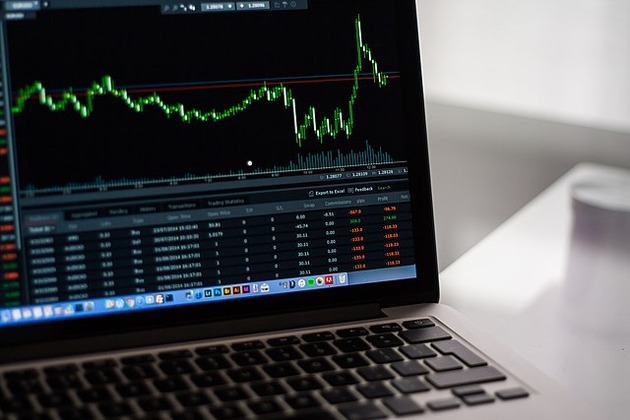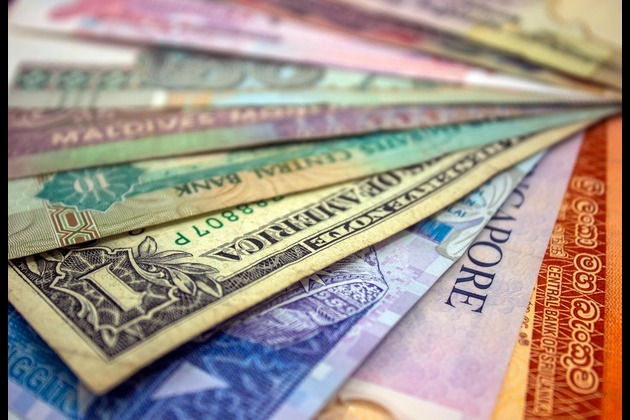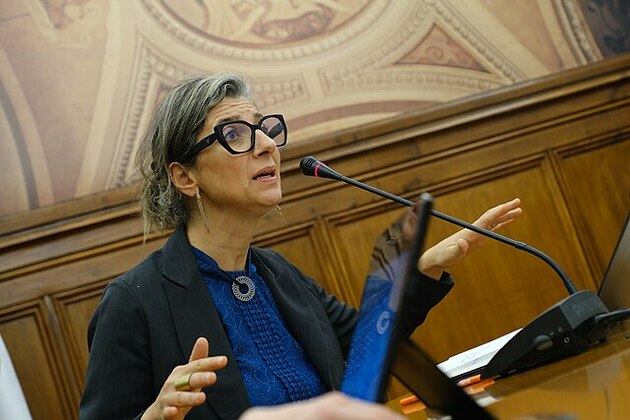OPINION | Eskom must tackle the cost of its coal contracts
News24
23 May 2020, 23:43 GMT+10

The lockdown is imposing additional financial strain on Eskom and necessitates urgent solutions to get the company on a sustainable path beyond Covid-19.
It is estimated Eskom will lose between R2.5 billion and R3 billion in revenue per month due to the low electricity demand triggered by the national lockdown.
This will compound existing problems: R450 billion debt, maintenance arrears, costly Medupi and Kusile faults, and money lost during state capture. The other perennial problem, perhaps the biggest, is the expensive coal supply contracts.
At the onset of the lockdown Public Enterprises Minister Pravin Gordhan, Minerals and Energy Minister Gwede Mantashe and Trade and Industry Minister Ebrahim Patel had not concluded discussions with Eskom coal suppliers about price cuts. The discussions began last year and have been ongoing, triggered by the need to cut Eskom's costs base and reduce debt to manageable levels.
Some industry observers have suggested that one of the easiest ways to cut Eskom's debt burden would be to reduce what they describe as Eskom's "bloated" work force. Predictably, this has been vociferously resisted by unions who point to coal contracts as the biggest elephant in the room.
Besides, cutting the work force is politically difficult for government given the highest level of unemployment in the country. The Covid-19 induced economic recession makes it even less attractive option.
Another option that has been on the table at the National Economic Development and Labour Council is capital injection by the government employee pension fund to reduce Eskom debt and save jobs. This idea, preferred by some unions, has been criticized by those who believe Eskom would be too high a risk to plough money pensioners may not recover.
The financial demands placed on the government as a result of the economic effects of Covid-19 will make bailout option any form or shape by government pensioners near-impossible. This is because the government has had to incur more debt for social relief to avert hunger and to cushion the blow on companies.
Given the fact that government employee pension fund offers defined benefits and is guaranteed by an already over-burdened state, the risk of using those funds for Eskom bailout would be way high after Covid-19.
So, what should Eskom do to alleviate its debt problem and remain viable in a slowing economy that desperately needs a reliable energy supplier to kick-start? This question is critical if we consider the fact that a healthy Eskom will be indispensable if we have a chance of rebuilding a job-creating and thriving post-Covid-19 economy.
Crucial to consider before venturing a solution is Eskom's current cost structure. Eskom spends just over R120 billion a year in primary energy generation (mainly coal procurement) and other operational expenses.
Eskom's biggest costs, as the unions have been at pains to regularly point out, are not employees. While it is true that efficiencies can be gained by trimming staff costs, to balance the ratio cost per employee versus amount of electricity generated per employee, the bulk of the costs are incurred in coal purchases. Coal inflation went up by as much as 14 percent in the last financial year, more than double the country's average (and falling) inflation rate.
In any event, a few months ago, Eskom began a voluntary process to trim the staff. It's not clear yet whether the process has been successful. It is common course that Eskom's procurement processes were not covered in glory over the years - something which new chief executive officer Andre de Ruyter has undertaken to fix.
But tinkering with the procurement process can only yield short-term relief, as those who benefit from costly irregularities - within and outside Eskom - are likely to fight back and hobble the cleaning process.
The solution is, therefore, to overhaul the coal purchasing system by designing and implementing an index pricing model.
An index price model essentially means Eskom sets the price in a way that ensures that coal suppliers get paid the same amount per energy content for the similar quality coal. The index will take into account local inflation, consumer price index, price of diesel, factors that affect the price of yellow equipment, exchange rate movements, international coal price changes etc.
What this model will do is to strip out price variations based on personal negotiations or connections between certain individuals or companies. It will thus make the prices transparent as the index will be made public.
The public can verify whether or not a certain supplier is paid at the right price or not - something that's not possible at this stage due to opaque agreements safely covered by confidentiality clauses.
This new model will also remove unnecessary aspersions cast on Eskom employees who are often perceived to be guilty of corruption by association. We must acknowledge that there are many hardworking, highly skilled, honest and patriotic officials at Eskom. Indeed, were it not for their patriotism, we wouldn't know some of the shenanigans of state capture involving the Guptas.
Eskom is ultimately the buyer of coal and it must decide on the cost-effective model to procure the coal. The duty to give effect to this rests with the company's chief executive officer, De Ruyter. Unencumbered by the legacy of wrong things that happened in the past, he has an opportunity to make history and leave a legacy.
He should drive the index pricing process, seek advice from Treasury as well as competition authorities.
Here are some of the issues to consider in the process to establish an index price model: First, pricing should be standardized to eliminate the perverse incentive for corruption that is fueled by the current procurement system. There should be a process to face out the current system within reasonable period. Eskom's CEO and Treasury should lead the process towards the index-based price model.
Eskom should be bound by the prescripts of the Public Finance Management Act in the procurement of all goods, except coal which should be governed by the transparent index price model.
Second, prices of all coal types and qualities should be published on Eskom's website as well as trajectory of the company's short- to long-term needs.
Third, cost-plus mines should be provided with capital to develop or expand capacity while make sure that their overall costs structures are brought in line with the index. If Eskom does not have capital to finance the cost-plus mines, the price of coal procured from these mines should be subject to the index.
Fourth, Eskom should create a roadmap for projects that should come on-stream for long-term sustainability of supply and ensure that their development is fast-tracked.
Fifth, process to register as a supplier to Eskom must be made easier by strengthening the utility's buyer capacity. This could be very useful to emerging miners.
Sixth, Eskom should buy direct from coal miners and the costly "middle-man" phenomenon must be scrapped to reduce cost of coal.Seventh, concerns raised by unions about expensive coal contracts should not be brushed aside. These should be investigated.
Last, the National Prosecuting Authority and Eskom must provide regular updates about recovery of money stolen during state capture as well as pending prosecutions of those involve in stealing during the construction of Medupi and Kusile.
 Share
Share
 Tweet
Tweet
 Share
Share
 Flip
Flip
 Email
Email
Watch latest videos
Subscribe and Follow
Get a daily dose of New York Statesman news through our daily email, its complimentary and keeps you fully up to date with world and business news as well.
News RELEASES
Publish news of your business, community or sports group, personnel appointments, major event and more by submitting a news release to New York Statesman.
More InformationBusiness
SectionStandard and Poor's 500 and and Nasdaq Composite close at record highs
NEW YORK, New York -U.S. stock markets closed with broad gains on Thursday, led by strong performances in U.S. tech stocks, while European...
Persson family steps up H&M share purchases, sparks buyout talk
LONDON/STOCKHOLM: The Persson family is ramping up its investment in the H&M fashion empire, fueling renewed speculation about a potential...
L'Oreal to buy Color Wow, boosts premium haircare portfolio
PARIS, France: L'Oréal is making a fresh play in the booming premium haircare segment with a new acquisition. The French beauty conglomerate...
Robinhood launches stock tokens for EU investors, adds OpenAI
MENLO PARK, California: Robinhood is giving European investors a new way to tap into America's most prominent tech names — without...
Wall Street diverges, but techs advance Wednesday
NEW YORK, New York - U.S. stocks diverged on Wednesday for the second day in a row. The Standard and Poor's 500 hit a new all-time...
Greenback slides amid tax bill fears, trade deal uncertainty
NEW YORK CITY, New York: The U.S. dollar continues to lose ground, weighed down by growing concerns over Washington's fiscal outlook...
International
SectionOver 60 companies named in UN report on Israel-Gaza conflict
GENEVA, Switzerland: A new United Nations report alleges that dozens of global corporations are profiting from and helping sustain...
UK lawmakers desigate protest group as terrorist organization
LONDON, UK - Lawmakers in the United Kingdom have voted overwhelmingly to proscribe the direct-action group Palestine Action as a terrorist...
Dalai Lama to address Buddhist conference, reveal succession plan
DHARAMSHALA, India: The Dalai Lama is set to address a significant three-day conference of Buddhist leaders this week, coinciding with...
US Supreme Court backs Texas efforts to shield minors online
WASHINGTON, D.C.: In a significant ruling last week, the U.S. Supreme Court upheld a Texas law requiring age verification for users...
Turkey, France battle wildfires amid early Europe heatwave
ISTANBUL/PARIS/BRUSSELS: As searing temperatures blanket much of Europe, wildfires are erupting and evacuation orders are being issued...
Venetians protest Bezos wedding with march through the town
VENICE, Italy: Over the weekend, hundreds of protesters marched through the narrow streets of Venice to voice their opposition to billionaire...













